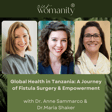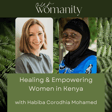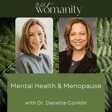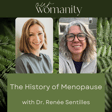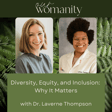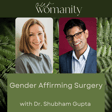
11. Human Affirming Medical Care with Gulnar Feerasta
TRIGGER WARNING: This episode discusses topics related to sexual assault, which may be distressing for some listeners.
In January 2024, the Ohio House of Representatives overrode the veto of a bill banning gender-affirming care. The bill “bans gender-affirming healthcare for minors, one of dozens of bills under debate this year that would restrict transgender rights across the U.S.” - Reuters
This week, I’ve invited my friend and colleague, Gulnar Feerasta, to discuss this bill and its impacts on the LGBTQ+ community.
Gulnar Feerasta is a Senior Atlantic Fellow, Yield Giving Awardee, LGBTQ+ health equity and social justice advocate, and the Managing Director of the LGBTQ+ Community Center of Greater Cleveland. She is a dedicated social worker with extensive experience in program development, implementation, and evaluation, grants management, organizational and community engagement, professional training, and education consulting. She is passionate about achieving positive outcomes for individuals and making a meaningful impact on communities.
Gulnar excels in building lasting relationships within organizations and communities to enhance program objectives and deliverables. Her strong communication and collaboration skills enable her to lead and perform liaison activities effectively with key stakeholders, upper management, external support systems, and clients.
Featured in this episode:
- Trans children not being allowed to participate in sports
- “Human based” instead of “gender-based” medical care
- How past trauma can influence medical checkups
- Medical Apartheid
- Hyper marginalization of trans-black women
If you or someone you or someone you know has been a victim of sexual assault, you can find help at the National Sexual Violence Resource Center (NSVRC).
Submit your questions on anything and everything women's health-related and we will answer them in one of our episodes.
Want more from Our Womanity?
If you enjoyed this episode of Womanity, please subscribe, rate, and leave a review. Your feedback helps us continue to bring you engaging and empowering content.
Follow us on social media:
- Instagram: @drrpope
- TikTok: @vulvadoctor
- Twitter: @drrpope


